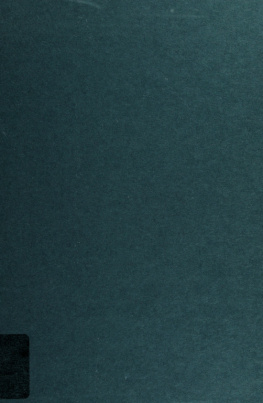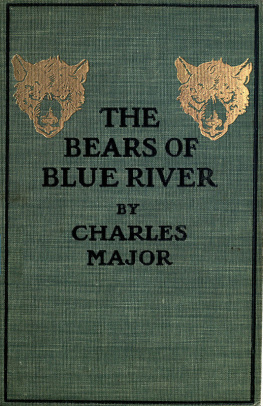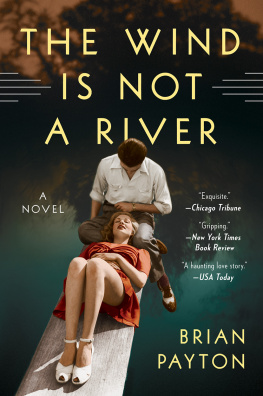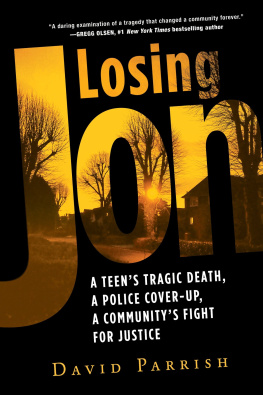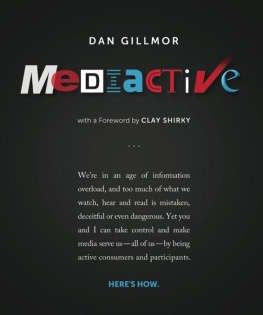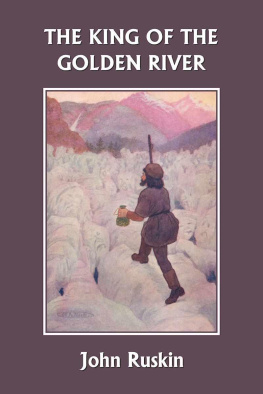Don Gillmor - To the River: Losing My Brother
Here you can read online Don Gillmor - To the River: Losing My Brother full text of the book (entire story) in english for free. Download pdf and epub, get meaning, cover and reviews about this ebook. year: 2018, publisher: Random House, genre: Non-fiction / History. Description of the work, (preface) as well as reviews are available. Best literature library LitArk.com created for fans of good reading and offers a wide selection of genres:
Romance novel
Science fiction
Adventure
Detective
Science
History
Home and family
Prose
Art
Politics
Computer
Non-fiction
Religion
Business
Children
Humor
Choose a favorite category and find really read worthwhile books. Enjoy immersion in the world of imagination, feel the emotions of the characters or learn something new for yourself, make an fascinating discovery.

- Book:To the River: Losing My Brother
- Author:
- Publisher:Random House
- Genre:
- Year:2018
- Rating:3 / 5
- Favourites:Add to favourites
- Your mark:
- 60
- 1
- 2
- 3
- 4
- 5
To the River: Losing My Brother: summary, description and annotation
We offer to read an annotation, description, summary or preface (depends on what the author of the book "To the River: Losing My Brother" wrote himself). If you haven't found the necessary information about the book — write in the comments, we will try to find it.
To the River: Losing My Brother — read online for free the complete book (whole text) full work
Below is the text of the book, divided by pages. System saving the place of the last page read, allows you to conveniently read the book "To the River: Losing My Brother" online for free, without having to search again every time where you left off. Put a bookmark, and you can go to the page where you finished reading at any time.
Font size:
Interval:
Bookmark:
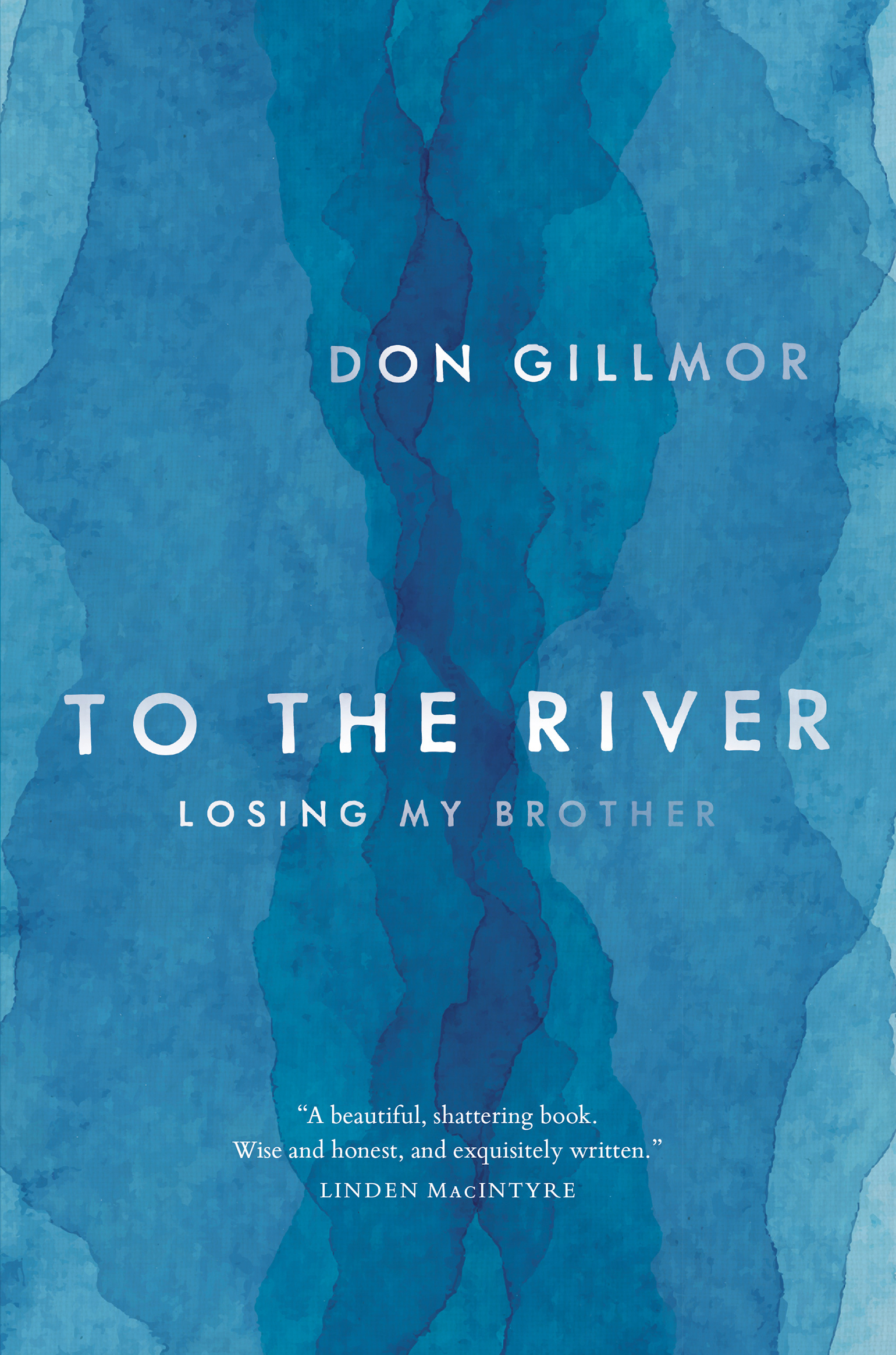
Suicide is a boundless, complex subject. It deeply affects Indigenous communities, the military, adolescents and the elderly, but here I have chosen to keep my focus narrow, to an area I have some experience with: the white boomer male.
I am grateful to the Canada Council and the Ontario Arts Council for their generous support, which made this book possible. I am indebted to all those who graciously gave their time and expertisethe sociologists, psychiatrists, suicidologists, friends and Davids friends who agreed to talk to me. I am grateful to my sister and parents for their unwavering support during what was a difficult project. My thanks to Jackie Kaiser at Westwood Creative Artists for her astute reading of early drafts. As always, thank you to Anne Collins for her heroic editorial efforts, patience and wisdom. And, finally, thank you to my wife, Grazyna, for her ongoing support.
DON GILLMOR is one of Canadas most accomplished writers. He is the author of the bestselling, award-winning two-volume Canada: A Peoples History, and his journalism on suicide has earned him both a National Newspaper Award and a National Magazine Award. Gillmors other books include the novels Kanata, Mount Pleasant and Long Change, which were published to critical acclaim, and nine books for children, two of which were nominated for the Governor Generals Literary Award. He lives in Toronto with his wife and two children.
When we were children, my mother warned my brother, David, and I about the Red River, which flowed muddily near our house in Winnipeg, just beyond a wooded area thick with mystery. Dont go near the river.
Inevitably, I gravitated to it. I sat with friends in the limbs of trees near the edge of the water, playing with Zippo lighters, analyzing superheroes. Poor Batman protected only by his wealth and his toys. A superhero without superpowers.
Spiderman could swat him like a fly.
Superman could swat Spiderman like a fly.
Spiderman holding kryptonite?
Thor could take them both.
Thors not even a real guy.
My brother was two and a half years younger than me, and our mother would regularly utter the words most older brothers dread: Take your little brother with you. So he would sit with us, a boy without guile, without information about the world (originally there had been eight Beatles but four died mysteriously, a friend told us with authority). A burden.
In spring, the mud-coloured Red gained momentum as the snow melted. Every spring we watched it rise, hopeful and fearful at the same time, wanting some drama in our lives but afraid of the consequences. Before we were born, in the Great Flood of 1950, the Red River rose more than thirty feet and produced an ad hoc lake that was sixty miles long. It swallowed our house, though it belonged to someone else then. Our whole neighbourhood was evacuated, among the hundred thousand Winnipeggers who had to leave their homes. Bob Hope gave an impassioned plea for aid on his show, which debuted that year. Princess Elizabeth, the future Queen of England, and her husband, the Duke of Edinburgh, came to our neighbourhood to view the damage, the start of their lengthy careers viewing colonial wreckage and parades. Every spring the Great Flood was invoked; the waters could rise and swallow us all.
Our neighbourhood, Wildwood Park, was contained in a loop in the river and bordered by a forest, a golf course and a private boys school. In the summer, parents simply opened the doors in the morning and we disappeared for the rest of the day. Sports rose and fell, baseball games, ball hockey games. Cliques formed and splintered. In the evening we played kick the can until after dark when our mothers finally called us home.
A staple was guns. Do you want to play guns? someone would say. And kids would race home and return with their latest plastic weapons. Except my brother and me. Our mother wouldnt let us own toy guns, a revolutionary and unwelcome stance in the 1960s. We were the least dangerous kids for miles.
Everyone else has one, I told my mother.
Youre not everyone else, she said.
What am I supposed to use to defend myself?
You can use a stick.
A stick. Armed with a stick, and sent out against machine guns and grenade launchers. It didnt matter that none of those gunsthe cap guns, the lever action Winchester rifles, the plastic grenades that were supposed to explode on impactbehaved the way they did in commercials. A stick was, in fact, a more effective weapon. But the game of guns, insofar as it was an actual game, was about recreating the heroics of war. Crawling around the dogwood bushes with a toy rifle and a plastic knife in your belt lent an authenticity to the experience that a stick failed to do.
Not being able to buy guns removed a fundamental part of the game for my brother and methe tactile joy of that plastic hardware. There was more fun to be found in the acquiring of weapons than in actually using them. In 1964, when the first Johnny Seven OMA (One Man Army) arrived in my neighbourhood with its seven functions (anti-tank rocket, anti-bunker missile, repeating rifle, grenade launcher, Tommy gun, automatic pistol, armour-piercing shell), it started an arms race. Every parent heard roughly the same arguments that the Pentagon was giving to Congress in the wake of the Cuban Missile Crisis: in order to survive in a dangerous world we need more weaponry, which means more money, which means a world safe for democracy.
Neither my brother nor I was comforted by the fact that the plastic bullets from the Johnny Seven started their downward trajectory pretty much right out of the barrel and the grenades only launched a few feet in what seemed like slow motion. As pedants pointed out in the critical death tally that ran through our gun narrative (I got you! Did not! I got you!), if it had been a real grenade, the launcher would have been blown up along with the target.
But it wasnt a real grenade.
If it wasnt real, then how can I be dead?
This line of inquiry often ended in an almost Foucauldian deconstruction of the fantasy we inhabited, which was, after all, held up only by unanimous belief. A single doubter could throw our whole world into question. We were dead or alive by consensus. Some, like my little brother, refused to die, regardless of how blatant the hit, how proximate the grenade, how many reliable witnesses confirmed it. He wouldnt acknowledge the red streak on his chest where the plastic knife had torn out his heart. He refused death, arguing that while he had suffered a wound, certainly, it hadnt been fatal because his years of guerilla training had made him all but immune to flesh wounds. Or he had managed to put up an invisible force field developed by the military only hours earlier that had deflected the plastic bullets. We all wanted to live. To die was to be excluded for the rest of the game. And though the game was ill defined and interspersed with stretches of boredom and confusion and frustration and malfunctioning equipment, we wanted to be a part of it.
Maybe it wasnt even a game. There were few rules, no referees, and no reliable way of keeping score. Occasionally our debates over who was dead descended into actual fighting. When this happened we left the battlefield and went home and turned on the black and white television in the living room to find something like Jack LaLannes exercise show, then turned it off and got out the comics and lay on the floor and reread them.
Font size:
Interval:
Bookmark:
Similar books «To the River: Losing My Brother»
Look at similar books to To the River: Losing My Brother. We have selected literature similar in name and meaning in the hope of providing readers with more options to find new, interesting, not yet read works.
Discussion, reviews of the book To the River: Losing My Brother and just readers' own opinions. Leave your comments, write what you think about the work, its meaning or the main characters. Specify what exactly you liked and what you didn't like, and why you think so.


